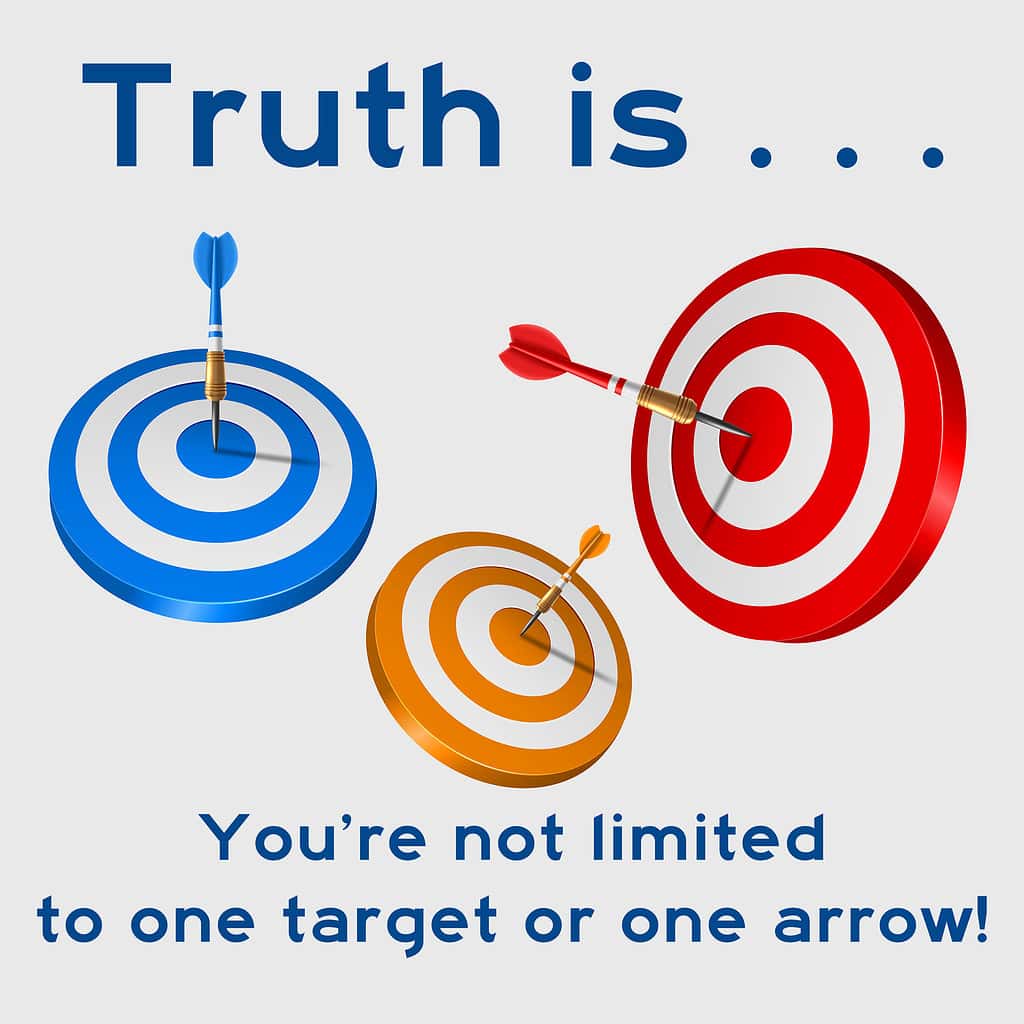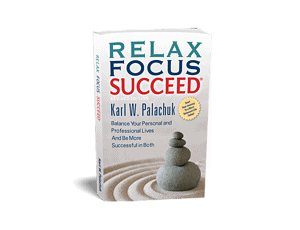
Change is one of the most trying things we deal with at work and in our personal lives. Both the presence of change and the absence of change are causes for vexation. In fact, “change” may be the greatest source of human problems.
Things change when you want to stay the same. Things don’t change when you wish they would. Some people embrace change and love it. Others fear change and fight it. We have committees dedicated to implement change. Sometimes change sucks all the energy we have and other times it revitalizes us in ways we never expected.
Dealing with change in healthy ways should be a major component of your business and personal life. And yet most of us have never thought about change in this way. Do you have a philosophy toward change? Do you know the values and behaviors that you use to respond to change and evaluate change?
One common example of how change affects our business lives is the “unexpected departure.” We’ve all seen this. Jane has worked or Company X for ten years. She knows everything. The whole place relies on her. No one can imagine the business without her. She’s trained bosses over the years and kept the place going when no one else would. Everyone knows her. Everyone loves her. She “is” the company to many people.
Then one day she gives two weeks notice and she’s gone.
No one saw it coming. No one ever imagined it. Employees are shocked. The boss is numb (and angry and scared). Customers and salespeople don’t know what to think.
To Company X, Jane’s departure seems cataclysmic at first. But, as a consultant, I deal with a lot of companies and this kind of thing is very common. As I think back on my clients in the last year I see that about 25% of them had such unexpected departures. I don’t know what the statistics are for businesses in general. There are all small businesses with 2-130 employees.
Some departures are change-of-life departures. For example: a spouse is taking a job in another state or the employee discovers he has cancer. Other departures are simply change-of-job departures: The employee finally got the state job she wanted, or got a better offer, or she’s just tired of being taken for granted.
We don’t like to contemplate change. For most of us, change is uncomfortable. We never prepare for it. Perhaps we think we can’t prepare for it. But of course you can.
Change is one of the most predictable things in the world—business or personal. Some changes are extremely painful, such as the death of a loved one. Others are joyous, such as a raise or promotion. Lots and lots of them are in the middle: They’re just change. We have to respond to them.

Reflect on your life. The greatest joys and sorrows of your life are a direct result of change. The greatest victories and defeats are a result of change. And yet we don’t have a philosophy toward change.
Sometimes we think that preparing for change makes us cold and calculating and manipulative. On the contrary. It is an excellent and well established business practice in big companies everywhere. It should be a practice in small businesses and in your personal life.
Businesses, even small ones, need a continuity plan that spells out what to do if the business loses certain key people. For all other positions there should be a job description that is good enough to hire and train a replacement.
And in your personal life you should have a will (or trust instrument). Many of us don’t have will because we don’t want to deal with some though issues. In addition to death, a very tough issue, your will must address the division of property and spell out what will happen to your children.
In the “Jane” example above, the boss is often blind to the need for change. Employees become bored. They think that they’ve gone as far as they can go. They feel taken for granted and unappreciated. There are many motivations for change. The boss contributes to this when he does not appear interested in fixing a situation the employee sees as a problem. Either he’s too busy or he does take her for granted. In either case, when Jane asks for a raise or more responsibility, the boss tries to dispense with “the issue” as quickly as possible so he can put everything back the way it’s supposed to be and get on with business.
There are also many cases in which the boss does everything “right” and the employee leaves anyway. A boss can go out of his way to show appreciation, give bonuses, pay for training, schedule raises, have liberal leave time for illnesses, pay for great benefits, and generally pay attention to all the details that employees find important. And yet, people leave, even after ten years.
Even a “perfect” boss cannot stop change. People get married, they move, they have illnesses, they decide to change careers, etc. All human beings should seek to improve themselves and grow in many ways. This keeps us alive mentally. Bosses need to encourage this. And yet this leads inevitably to change.
Bosses need to accept this.

Another common example of how “change” affects the workplace is the resistance to change that it is so common all around us. Just as the boss get comfortable with key employees, many employees get comfortable with their jobs. So we see that the employees settle into a nice, safe cocoon and don’t like change.
But businesses change. New policies emerge, new procedures are needed. New systems are introduced. Sometimes departments are reorganized and new bosses are introduced. Sometimes this all happens at once and it’s just too much for the employees to take.
In today’s work environment there seems to be more change than ever before. Companies grow fast, shrink fast, buy each other up, merge, and change, change, change. Even some of the biggest companies in the world are caught up in buying and merging frenzies. So eve in times of great prosperity there is change that results in layoffs.
It seems impossible that one could hope to keep a job for ten more years. The 21st Century has brought forth a world that never stops changing.
To quote the Borg on Star Trek, “Resistance is futile.” Change is coming to a workplace near you. It’s coming whether you resist it or not, whether you embrace it or not.
I like to joke that it takes me about ten years to get used to the price of clothes. When I finally accept that a shirt costs fifteen dollars, I see the price is twenty. When I get used to twenty the price is thirty. And I can’t imagine paying $150 for a pair of shoes for my daughter, who will likely outgrow them in two months!
Many of us have this kind of attitude toward change at work. “Just let me get settled into my job with no changes for the next year. Then I’ll be ready for change.”
Well, in the first place, change doesn’t fit into our timetables. Change just happens. In the second place, you fool yourself into thinking that you’ll be ready in a year. One year without change would merely calcify your current attitude. In a year you’ll be ready for change “in a year.”
For most of us, change is quite disturbing. Even if we like “new things” such as computers, clothes, stereo equipment and gadgets, we also lave our routine. Work may be stressful and unchallenging but at least it’s the devil we know.

So, many people find themselves in an ironic position. They don’t want to change jobs because they fear the change. Perhaps they fear unemployment or interviews or starting over. But they stay in a job they hate—and they often hate their job because it is changing. If they stay, their job changes around them. If they leave, they go willingly into a different world.
Very often, of course, we invite change. We decide to go to college, get a job, get married, have a child, change jobs, go back to school, and so forth. In such cases we embrace change. And yet we do not prepare ourselves for the associated changes that take place.
Perhaps the easiest example is having a baby. We foresee an expanded commitment and diapers and strollers and school. But very few of us are prepared for the changes that take place in our relationship with our spouse: less time together, less sleep, and less time “out” on dates.
None of these things is bad, but these associated changes are not as welcome as the change we planned for.
Overall, I believe most of us live with an amount of change we find comfortable. We resist “too much” change—more than we find comfortable. And we invite change when we have less than we find comfortable. There is a comfort zone for the level of change we like.
Because we each seek our own comfort zone for change, our response to the circumstances of our life will vary depending on where we are “in the zone.” If things are very stable for me (I’ve had the same job for five years, there are no medical crises, and there have been no deaths in the family) I may jump at the opportunity to start a new business. But if my world is already full of change (I just got a promotion, my kid’s going to college in the Fall, and I recently buried a parent) I might need to pass up an opportunity and spend some time getting comfortable with the way my life is right now.
It is possible that both of these examples involve the same chance for success. The only difference is our response is our comfort level with additional change. This tendency to seek equilibrium of change is a very healthy response on our part. After all, should we be taking on major new projects when we are burdened with emotional and financial burdens already? Of course not.
Enough is enough and our unconscious minds know that (even if we don’t). Our minds also now when it’s time for more change. People can’t stagnate. They have to do things that are interesting in order to stay alive. We often hear advice for the elderly: stay active, get out and do things, have a hobby. The same is true for all of us.

If we make no changes in any aspect of our lives for years, we can find ourselves going crazy. We don’t feel “alive” anymore. We feel trapped in a life that we don’t like—even though we built it. Some of us have so-called midlife crises. This might mean getting a new car (a sports car, of course), quitting a job, or taking up skydiving. Sometimes, sadly, it means giving up a solid marriage of twenty years.
We need to do something—anything—to bring change into our lives. We need to restore equilibrium.
In the various examples regarding the subject of change, you will see healthy changes and unhealthy changes as well as healthy responses to change and unhealthy responses to change. It would seem that change is a major part of our lives. Yet what programs and policies do we have toward change? Virtually every book or seminar or class deals with responses to change. Examples include “Dealing with [your disease here],” “After the fire,” or “What to do when you lose your job.” There are also a few seminars on implementing change.
So we can find information on how to make change happen and how to deal with change when someone else makes it happen. But there seems to be nothing to help us prepare for change generally, to help us develop a philosophy of change.
A philosophy of change is a series of approaches we adopt, in a very general sense, to the various aspects of change in our lives.
Think about your response to change. Do you resist it? Is your first reaction one of interest and excitement?
As with many elements in a marriage, it took some time for my wife and me to get used to each others’ approach to change. In my personal life, I like stability most of the time. But when it’s time for change I like to jump right in and help with planning and implementation. In my work I’m constantly pushing changes and improvements.
My wife is almost the opposite. She would like to find a work environment “that works”—one that allows people to make progress before a series of changes come and disrupt the work environment for some period of time. In her personal life, my wife likes to keep things interesting by trying new things. In exercise, for example, she rides her bike every day for six months. Then she transitions to a regimen of aerobics with a little bicycling. After awhile she adds yoga to the mix. Then she drops the bicycle for six months.

In areas that affect both of us, she tends to consider changes for a long time before she mentions them to me. My first reaction to new ideas tends to be “let me think about it.” I want to sit with an idea for some time before I have any reaction. This is especially true of ideas the first time I hear them.
If someone were to propose a new idea and want an answer right away, the answer would be no. That allows me to think about the idea for awhile and have a well-thought-out answer the next time the topic comes up.
So here’s what used to happen to us: My wife would ask something like “Do you think we need a new car?” Without any prior discussion my first reaction would be “no.” Where did this come from? My wife of course, has been thinking about this for some time. Her car’s getting old. We don’t have any car payments on my car. We don’t need a station wagon anymore. It would be nice to have a car with anti-lock brakes.
When I hear all this I think she’s already make up her mind. I think she’s talked herself into it and that she’s ready to start filling out the loan application. I’m resistant.
Now, after ten years of marriage, we’ve talked out how we approach change and we have a better way dealing with it. Now when she has an idea, my wife prefaces it with “this is just a thought. We don’t have to make a decision right away. What do you think about moving to a new house?” And I respond “This is the first I’ve heard of this idea. Let me think about it.”
In fact, because we now have a very easy, non-threatening way for her to introduce ideas, I am usually very receptive and ready to think about them. I know she hasn’t already made up her mind and just needs to convince me.
The point is, we have developed a philosophy of change. We don’t know what life will hand us next, but we know how to address the situation. We know how we will discuss it, we know how we will come to a conclusion, and we know we’ll agree on stages to implementing the decision.
Our approach may not work for you. Philosophies of change are as varied as philosophies for investing money. Some people are risk-takers and can tolerate dramatic shifts in the stock market; others want stability and prefer certificates of deposit. Some people want constant change and are invigorated by it; others want stability and implement changes slowly over time.
Businesses need philosophies of change as well. And the managers (owners) need to communicate their philosophies with the employees. It is extremely helpful to businesses when the employees know how change will be handled. They need to be told how the process will work, how communication will flow, and how much lead time they will have before change affects them.

Too often, companies find themselves considering a major change without a philosophy of change. They end up keeping everything secret from the employees in an attempt to “avoid disruption.” In fact, they cause tremendous disruption as employees begin worrying about what’s coming. Will they be laid off? Is a new boss coming? Is the company going bankrupt? Why are the managers’ doors always closed?
When you create this environment, it is almost impossible to switch to an open, honest discussion of the changes that are coming. After a period of secrecy, your credibility is suspect. Employees feel manipulated because they know there’s a “private” discussion and a “public” discussion.
If a company has a philosophy of change—one that has been discussed before the change is imminent—then employees have a very different reaction. You can tell them, we have to discuss some things behind closed doors. It may all come to nothing, or we may be making some exciting changes. Then keep the employees informed. Let them know that you are following the procedures discussed beforehand. You’re simply following the plan.
The same is true for less dramatic changes. When a high-level employee quits, for example, it is a good idea to change the security codes and passwords. Make this a policy, discuss it with everyone, and set a time certain to change the codes and passwords as a way to introduce the policy. Then, when someone leaves and you implement the change, everyone will know it was coming. No one will say “They changed the codes when Jane left, but not when Bill left. Jane must have been fired.”
Remember, the greatest spectator sport in the world is watching the boss. If the boss doesn’t let people know what’s going on, they will write their own version.
Here are some of the primary elements of my professional philosophy of change:
- Change happens. Sometimes it’s good; sometimes not.
- Don’t react immediately—get the facts
- It never hurts to listen
- Take time to ask advisors
- Is this the right thing for my customers, my company, and me?
- Is this consistent with our beliefs and goals?
- Keep employees informed
- When a decision has been made, proceed to implement it
It helps a great deal to have company beliefs and goals. If your company has a defined philosophy about business, creating a philosophy of change is a lot easier. One key element is that change within your organization must be kept in perspective. Don’t panic. The senior manager quit? The key employee is sick and out for six weeks? Focus on the fix, not the problem.
You can never stop change. Change happens.
But you have control over how you react to change.
The most important thing is that you don’t let “change” become “crisis.” In most cases, this is entirely within your control because you decide how you will react to change. There is no need to be surprised or alarmed when change happens. Decide now how you want to handle change. It won’t be long before you get to practice you philosophy. After all, change happens.
| “Opportunities are easily lost while waiting for perfect conditions.” — Gary Ryan Blair |







